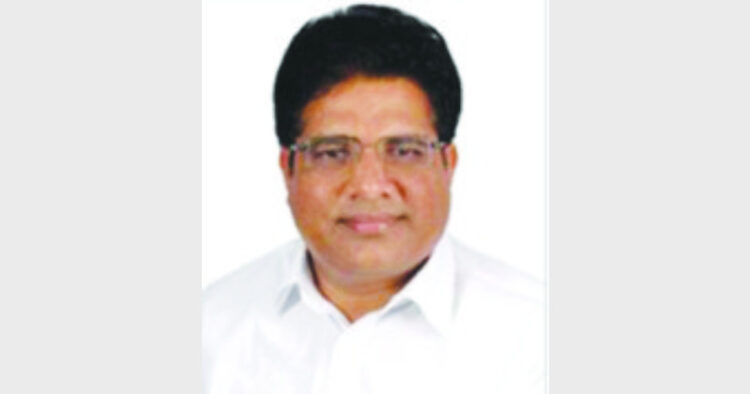Look at Constituent Assembly debate on religious reservation
Bhupendra Yadav, MP
The Congress government has again sought to make vote bank politics in its move to create religion-based quota in OBC reservation. The Congress in Andhra Pradesh attempted to pass legislation in order to allure the Muslim community for its petty political gains. This legislation was later quashed by the Andhra Pradesh High Court as being ultra virus to Article 15(1) and 16(2) of the Constitution of India.
The Constitution Bench of the Andhra Pradesh High Court, while quashing the said religiously biased legislation, opined that any legislation benefiting individuals on the sole criteria of religion would be un-constitutional. It held that the entire legislation was religion-specific since it focused only on the Muslim community and observed that the said legislation was “subversive of the spirit of secularism” and it would lead to unscrupulous people embracing Islam to draw benefit from reservations. The Congress in an earlier attempt as well had tried to pass a resolution to declare the entire Muslim community as backward class community. These attempts continue to reinstate their policy of pseudo-secularism.
The second attempt by the UPA to create 4.5 per cent sub quota for the Muslim community within the 27 per cent Other Backward Classes quota for underprivileged minorities was also quashed by the Andhra Pradesh High Court as being un-constitutional. The judgement is under challenge before the Supreme Court of India wherein the Court has rejected the plea of the UPA government for interim implementation of the 4.5 per cent sub quota.
However, this is not a new debate in the country and not for the first time that a religion-biased attempt to erode the very fabric of the Constitution has been made. The historical relevance of this debate predates right to the time when the Constitution of India was framed. An Advisory Committee was constituted on January 24, 1947 for determining the fundamental rights of citizens, minorities amongst sections of society. The question of religious reservation was raised before the Constituent Assembly on whether separate electorates based on religion were required to be established.
The Advisory Committee was empowered to appoint sub-committees, and accordingly a Sub-Committee on Minorities was appointed on February 27, 1947 to consider and report on the issue of whether there should be joint or separate electorates. The Sub-Committee by a majority of 28 to 3 decided that there should be no separate electorates for election to the legislatures.
The Report of the Sub-Committee was accepted by the Advisory Committee stating that “the first question we tackled was that of separate electorates; we considered this as being of crucial importance both to the minorities themselves and to the political life of the country as a whole. By an overwhelming majority, we came to the conclusion that the system of separate electorates must be abolished in the new Constitution. In our judgment, this system has in the past sharpened communal differences to a dangerous extent and has proved one of the main stumbling blocks to the development of a healthy national life. It seems especially necessary to avoid these dangers in the new political conditions that have developed in the country and from this point of view the arguments against separate electorates seem to us absolutely decisive. We recommend accordingly that all elections to the Central and provincial Legislatures should be held on the basis of joint electorates.”
Sardar Patel while referring to the suffering and the heavy penalty the nation had to pay on this count expressed his satisfaction “that there has been unanimity on the point that there should be no more separate electorates and we should have joint electorates hereafter. So this is a great gain” He further opined that “…the Committee considering the whole situation came to the conclusion that the time has come when the vast majority of the minority communities have themselves realized after great reflection the evil effects in the past of such reservation on the minorities themselves, and the reservations should be dropped.”
Another prolific statesman, Govind Vallab Pant vociferously argued against reservation on the basis of religion exploring the idea that isolating a community within the functioning system of a democratic country would cripple them. He encouraged minorities to form an integral part of the nation.
Having burnt the mid-night oil post Independence, the architects of free India not only saw no merit in having reservations based on religion, but also decried it as something that could potentially have a destabilising effect on the nation. They had experienced the effects of such religion-based reservations and separate electorates under the British rule, which ultimately led to the Partition in 1947. The UPA Government in its attempt to gain a slice of the Muslim vote has opted to pursue policies that questions the very fabric of a secular nation.
The UPA has given no thought to the destabilising aftermath such a reservation based on religion can have on the future of the country. It seems the current Government for petty gains is risking exposure to factionalism in the country due to its detrimental and ultra virus policies.














Comments